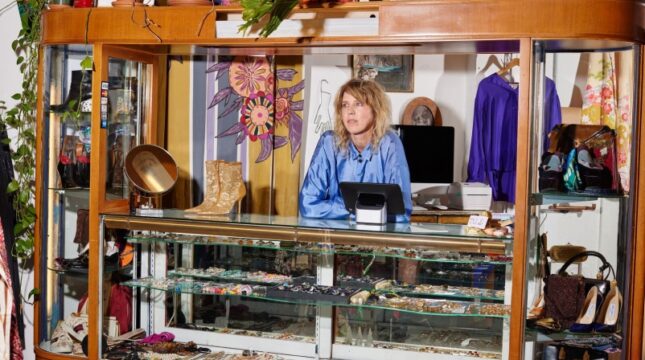Small business licensing and permit fees
Before you welcome customers into your store, you need to make sure you have the right retail licenses and permits. These are essential to keep your business in compliance with taxes and local and state government regulations.
Regulations vary by location, so it’s important to check with your city, county and state governments to make sure you meet the necessary requirements in your area.
- EIN. Short for Employee Identification Number, you need an EIN from the IRS to file your business taxes. Getting one is free.
- Business license. Nearly every business needs a license to operate legally in the United States. You can typically get one from the city or county where you plan to open your store. The cost ranges from about $50 to several hundred dollars, depending on where you live.
- Seller’s permit. Most states require retail stores to have a seller’s permit so the government can collect sales tax on the merchandise they sell. Most states don’t charge for this permit, but those that do typically charge less than $100.
- Resale certificate. Some states automatically issue resale certificates to businesses when they get a seller’s permit. In other states, there’s no application: A business owner downloads it from the state’s department of revenue website. If you’re buying inventory to sell at your business, you don’t have to pay taxes on it. But you’ll need a resale certificate to show the supplier if your business is in a location that charges taxes. If your business doesn’t charge state or local taxes, you don’t need one. Typically, there’s no cost associated with obtaining a resale certificate.
- Certificate of occupancy. This shows that your store is up to code and safe for people to visit. You can get an occupancy certificate from your local zoning or building office for around $100.
- Sign permit. If you plan on hanging a sign with your business name, you will need a permit. Get one from your local building and zoning office. Prices vary based on the type of sign you have.
The price of store fixtures
Once you find the space for your retail store, you may want to customize it with display cases, dressing rooms, shelves, cabinets, lighting, countertops, new flooring, paint and more. Unlike the other fixed costs and expenses of running a business, this is a part of your budget that you’re able to control completely.
Shelving can cost anywhere from a couple hundred dollars to a couple thousand dollars. Storage racks range from about $50 to $250. In general, dressing rooms cost around $1,000 each, and lighting can run from a few hundred to several thousand dollars.
Be sure to shop around. And check out non-traditional sources of commercial fixtures, such as auctions or liquidation sales.
Retail inventory startup costs
You will only need enough retail inventory to get you through the first few months of business. Once you see how products sell, you can adjust your purchasing accordingly.
To get the best deals on inventory, don’t be afraid to negotiate with suppliers — many of them expect it. You may save by buying in bulk. Don’t buy so much that it sits on the shelves for months, taking up valuable space.
Technology and electronic payment fees
Your retail store will need a point-of-sale (POS) system, and costs vary depending on the hardware and software you choose.
If you purchase the hardware, it typically costs about $300 to $1,600 per terminal, and the price of software ranges from about $50 to $300 per month. You may also be able to rent or lease hardware for about $50 to $100/month per unit. This could help you save money upfront but cost you more long term.
Be sure to include payment processing fees for debit and credit card payments in your monthly costs. Some services charge a per-transaction fee, ranging from about 2.7% to 3.5% of the purchase price. Others charge a monthly fee no matter how many transactions you process. The option that’s right for you depends on the volume of credit card payments you expect.
You can’t accept credit card payments without the internet. Small business internet service can cost anywhere from $50 to $500. Look for promotions and special offers to help you save money.
You’ll also need computers and printers to place orders, track inventory, print reports and manage the day-to-day operations of your business. To help save money on hardware, look for used and refurbished models.
The cost of security for a retail store
Shoplifting and theft are a huge problem in retail, and it can have a major impact on your bottom line. But there are security measures you can put in place to help deter would-be thieves.
The average cost for security cameras for a small to medium-sized business with one location is around $3,000. Installation and activation cost an additional $500, and monthly monitoring fees range from $40 to $120.
Read our retail loss prevention guide for more tips.
Signage fees
The average price of a public-facing business sign is $2,000 to $3,000. But you might pay more or less depending on the size and material you choose.
Marketing and advertising costs for a small business
Website development and web hosting can have a huge range — from free to a couple of hundred dollars a month (depending on how much of this work you can do yourself with free tools).
You will need to let the world know that you exist and then remind them about your products or services with advertising. To get the word out there are many options to choose from, including email, print advertising, radio, tv and social media.
The channel that’s right for your business depends on where your target audience hangs out.
How NEXT can help with retail business insurance
At NEXT, we create customized retail business insurance packages at affordable prices to help protect your business.
See coverage options, pricing and purchase policies — all in about 10 minutes. As soon as your purchase is complete, you can access your certificate of insurance online 24/7 via web or mobile app.
If you have questions, our licensed, U.S.-based insurance professionals can help.
Start a free quote with NEXT today.







